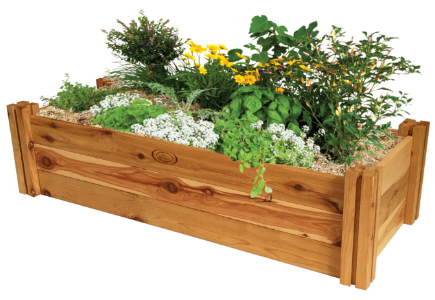-
HHerman jones 3 weeks ago
Maybe little things are changing the world raised garden bed.
When it comes to modern agricultural practices, raised garden beds have become increasingly popular due to their numerous benefits. These elevated planting areas offer a range of advantages that can significantly improve the efficiency and productivity of agricultural operations. In this article, we will explore the 5 key benefits of using raised garden beds in the agriculture industry.
Improved Soil Quality
One of the primary benefits of utilizing raised garden beds in agriculture is the ability to control and optimize soil quality. By filling the beds with high-quality soil, farmers can ensure that their crops receive the necessary nutrients for healthy growth. Additionally, the elevated nature of the beds promotes better drainage, preventing waterlogging and soil compaction. This results in improved aeration and root development, ultimately leading to higher yields and better crop quality.
Enhanced Pest and Weed Control
Raised garden beds provide a natural barrier against pests and weeds, offering a level of protection that is often challenging to achieve in traditional farming methods. The confined space of the beds makes it easier to monitor and manage potential pest infestations, while the elevated structure can deter certain ground-dwelling pests. Furthermore, the controlled environment of raised garden beds makes it easier to implement weed management strategies, reducing competition for nutrients and promoting healthier crop growth.
Extended Growing Season
Another significant benefit of raised garden beds in agriculture is the extension of the growing season. The elevated design of the beds allows for better soil drainage and faster warming in the spring, enabling farmers to start planting earlier. Additionally, the improved soil quality and drainage contribute to better moisture retention, which can be particularly advantageous during dry spells. This extended growing season provides farmers with more flexibility in crop selection and succession planting, ultimately leading to increased productivity and profitability.
Accessibility and Ergonomics
Raised garden beds offer practical benefits for farmers in terms of accessibility and ergonomics. The elevated nature of the beds reduces the need for excessive bending and stooping, making it easier for farmers to tend to their crops without straining their backs. This is especially beneficial for older farmers or those with physical limitations. Additionally, the raised height of the beds can facilitate better organization and management of agricultural tasks, contributing to overall efficiency and reducing the risk of injuries.
Optimized Space Utilization
Finally, raised garden beds allow for optimized space utilization, particularly in areas with limited arable land. The compact nature of the beds enables farmers to maximize their growing area, making them ideal for urban and small-scale agricultural settings. Additionally, the defined borders of the beds make it easier to implement crop rotation and companion planting strategies, further enhancing productivity and sustainability.
Overall, the use of raised garden beds in the agriculture industry offers a multitude of benefits that can significantly improve the efficiency, productivity, and sustainability of farming operations. From improved soil quality to enhanced pest control and extended growing seasons, the advantages of raised garden beds make them a valuable asset for modern agricultural practices.
References
